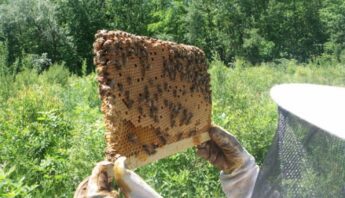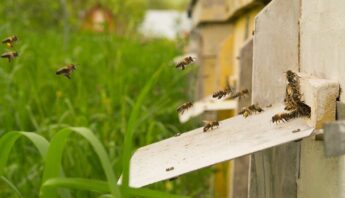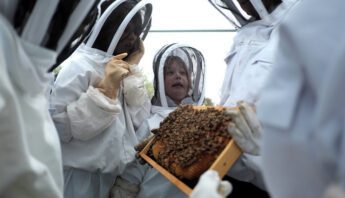FOR IMMEDIATE RELEASE: May 15, 2015
Contact: Lex Horan, Pesticide Action Network, lex@panna.org, 651.245.1733
Erin Rupp, Pollinate MN, erin@pollinatemn.org, 612.245.6384
Four of six bills have bipartisan support
This morning, Minnesota Senators introduced a suite of bills to combat the decline of honey bees and other pollinators. Four bills were co-authored by Senators Matt Schmit (DFL-Red Wing), Carrie Ruud (R-Breezy Point), and Kari Dziedzic (D-Minneapolis), and would create a new granting program for farmers to increase pollinator habitat; protect pollinator habitat on state highway roadsides; and fund research for develop less-toxic pesticides and supporting farmers to implement IPM practices to transition away from neonicotinoids. Two additional bills, authored by Schmit and Dziedzic, would address a loophole in federal law by tracking neonicotinoid seed coatings and place a 5-year moratorium on neonicotinoid pesticides and fipronil.
All six bills were introduced on the heels of new data finding that last year was the second-worst year on record for honey bees. Beekeepers across the nation lost 42% of their hives; losses for Minnesota beekeepers topped 50%.
In response to legislation introduced today, Lex Horan, organizer with Pesticide Action Network, said:
“The six bills introduced today are a breath of fresh air. This session we’ve seen legislators cave under pressure and roll back last year’s truth-in-advertising nursery bill, so that plants containing bee-harming pesticides can be labeled as ‘bee-friendly.’ In sharp contrast, this legislation would move our food and farming system forward: phasing out pesticides that are major contributors to bee declines and investing in alternatives.”
Erin Rupp, beekeeper and director of Pollinate Minnesota, said:
“This is what it looks like when our decisionmakers get serious about tackling bee declines. Pollinators are in crisis for multiple reasons. These bills addresses two of the biggest problems for bees: exposure to pesticides and a shortage of nutritious forage. After our hard-won victories last session, I’m proud that some of our Minnesota legislators are going to bat to make our state a leader in pollinator protection.”
###







